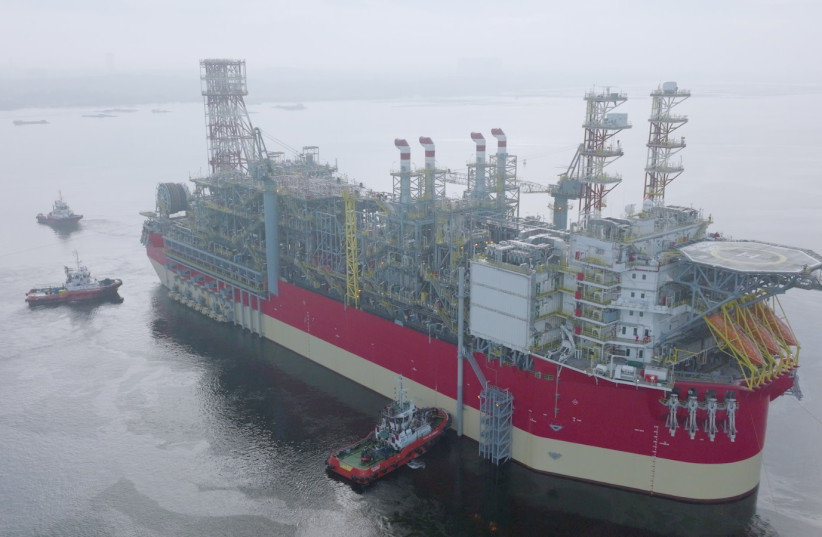WASHINGTON – Senior US Adviser Amos Hochstein will travel to Lebanon on Monday to discuss “sustainable solutions to Lebanon’s energy crisis,” the State Department announced.
During his visit Hochstein will “underscore the Biden Administration’s hope that Lebanon and Israel can reach a decision on the delimitation of the maritime boundary,” said the State Department.
“The Administration welcomes the consultative and open spirit of the parties to reach a final decision, which has the potential to yield greater stability, security, and prosperity for both Lebanon and Israel, as well as for the region.”
US State Department
Lebanon warned Israel on Sunday against any “aggressive action” in disputed waters where both states hope to develop offshore energy, after a ship arrived off the coast to produce gas for Israel.
President Michel Aoun denounced the arrival of the natural gas storage and production ship operated by London-based Energean.
Israel says the field in question is within its exclusive economic zone, not in disputed waters.

But in a statement, the Lebanese presidency said Aoun discussed with caretaker Prime Minister Najib Mikati the vessel’s entry “into the disputed maritime area with Israel, and asked the Army Command to provide him with accurate and official data to build upon the matter.”
Aoun said negotiations to delineate the southern maritime border continued and “any action or activity in the disputed area represents a provocation and an aggressive action.”
On Wednesday, Defense Minister Benny Gantz, Foreign Minister Yair Lapid and Energy Minister Karin Elharrar warned that “the State of Israel prioritizes the protection of its strategic assets, and is prepared to defend them and the security of its infrastructure, all in accordance with its rights.”
The ministers specified that the Karish field, about 80 km. west of Haifa, is an Israeli strategic asset “intended to extract the energy resources and natural gas in the State of Israel’s Economic Zone and to advance Israel’s green economy.”
"Extremely dangerous"
Energean said its floating production storage and offloading vessel arrived last Sunday at the Karish field. The company said it planned to bring it online in the third quarter.
Mikati said Israel was “encroaching on Lebanon’s maritime wealth, and imposing a fait accompli in a disputed area,” calling this “extremely dangerous.”
The United States began mediating indirect talks between the sides in 2000 to settle a long-running dispute that has obstructed energy exploration in the eastern Mediterranean.
Lebanon, home to the heavily armed, Iran-backed Hezbollah group, has previously warned Israel against drilling for oil and gas in the disputed area until the issue is resolved, and said the group would take action if it did so.
Lebanon says its border cuts into the sea at an angle farther south and Israel’s claim runs farther north, creating a triangle of disputed waters.
Last year, Beirut expanded its claim by around 1,400 sq.km., enlarging the disputed area.
Lebanon has yet to respond to an undisclosed proposal a US envoy made early this year to revive the stalled talks.
Reuters contributed to this report
